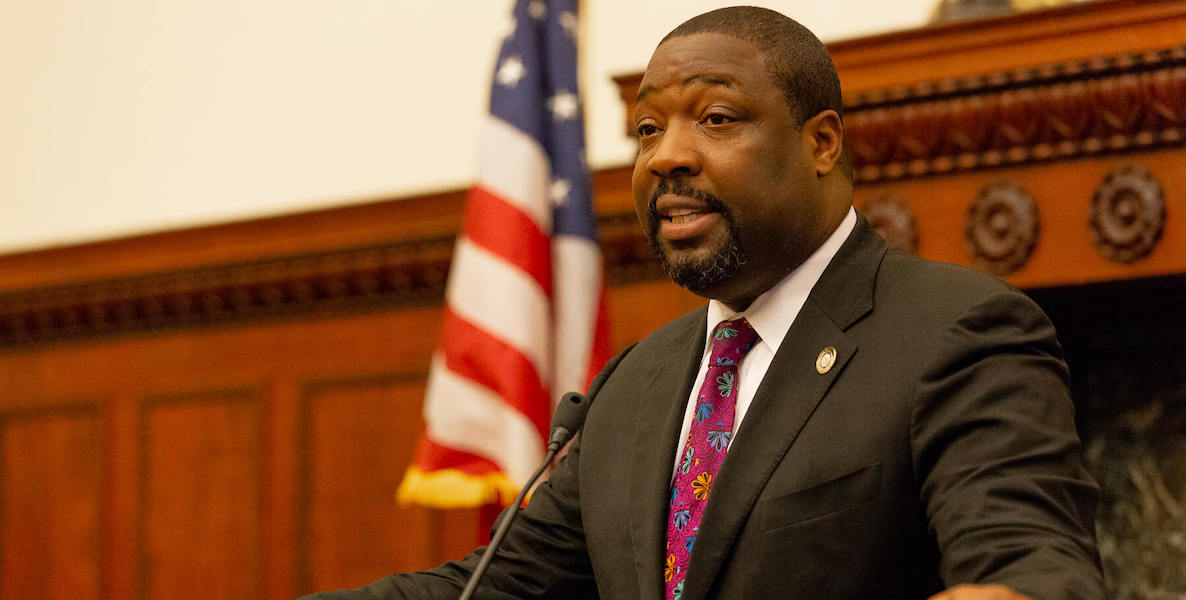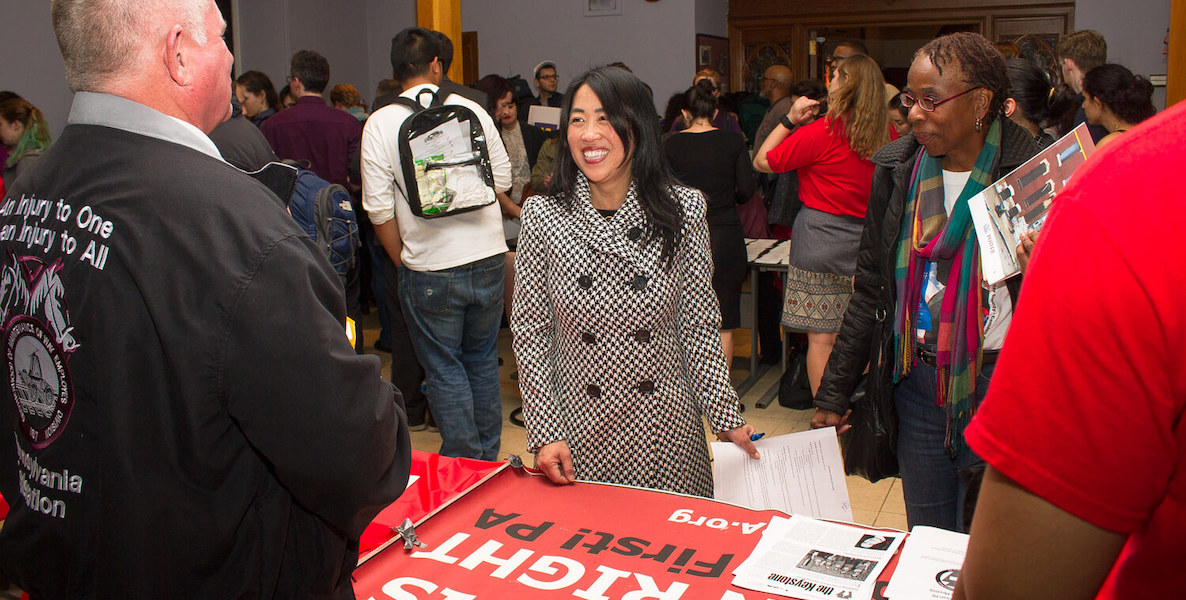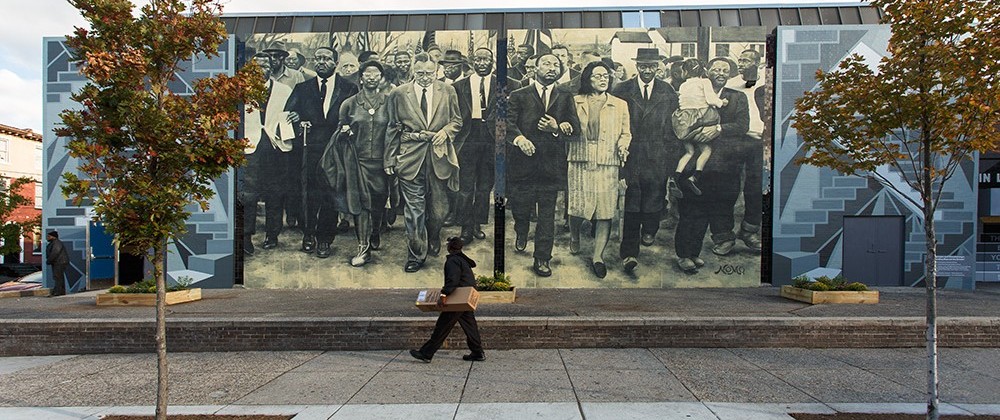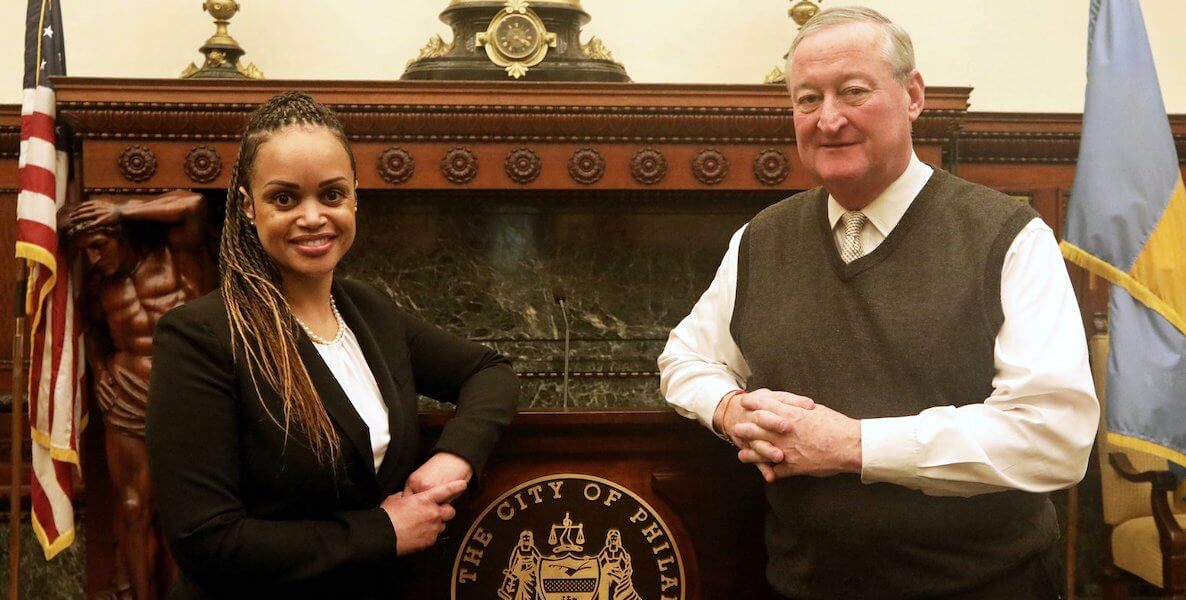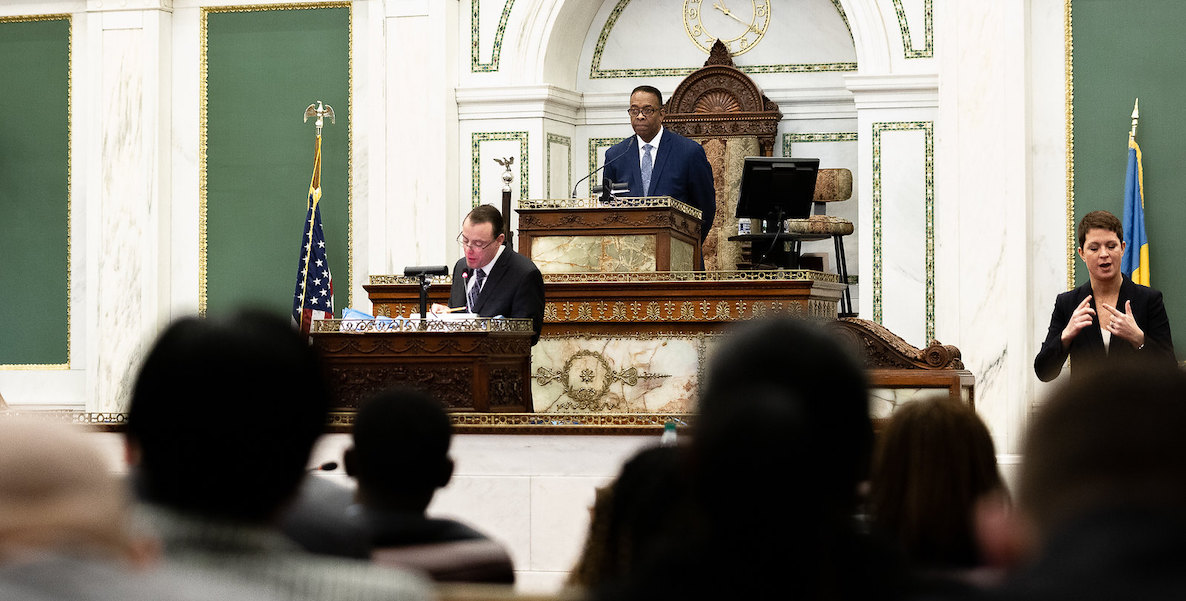![]() Imagine picking up a copy of the U.S. Constitution today and, rather than seeing all the nuanced intentionality of the framers’—all the ways in which they envisioned the continual sprouting of a more perfect union—you were met instead with a litany of modern-day amendments to their sui generis handiwork, some damaging to public governance, some just inane.
Imagine picking up a copy of the U.S. Constitution today and, rather than seeing all the nuanced intentionality of the framers’—all the ways in which they envisioned the continual sprouting of a more perfect union—you were met instead with a litany of modern-day amendments to their sui generis handiwork, some damaging to public governance, some just inane.
Imagine, rather than opening with the poetic announcement that here we have a moral document—“We the People of the United States…”—we got instead a bloodless list of populist preferences, amendments that expressed, I don’t know, sympathy for Vanessa Bryant alongside thinly veiled interest group grabs for more power.
You’d be pretty uninspired, no? Well, go to our local constitution, the Philadelphia Home Rule Charter and be ready for just such an experience.
There, the first thing you’ll be confronted with will be a list of amendments adopted via ballot questions over the years, running from the insipid—should we really have enshrined in the equivalent of our founding document a call to bring U.S. troops home from Iraq in 2007?—to the fantastical, like the notion that the city of Philadelphia will provide universal health care coverage to its citizens.
![]() Codifying positions into the Philly Charter on issues like the Iraq War and universal health care are a sign of our descent into silliness. If that were the only effect of our recent Charter amendment mania—we passed one amendment between 1991 and 2003, but 19 in the last six years—it would be simply something to shake our heads about: “That’s so Philly.”
Codifying positions into the Philly Charter on issues like the Iraq War and universal health care are a sign of our descent into silliness. If that were the only effect of our recent Charter amendment mania—we passed one amendment between 1991 and 2003, but 19 in the last six years—it would be simply something to shake our heads about: “That’s so Philly.”
But, as Council this week took up yet more possible amendments for inclusion on the April ballot, there’s a real danger. Many of the amendments adopted in recent years, including some under consideration now, actually chip away at the very animating idea behind our 1951 reform-era Home Rule Charter. They run counter to the principles laid out in the Charter itself, and, in many cases, they represent Council, rather than legislating, conducting politics by Charter amendment means.
More and more of late, when Council is unable to convince the mayor through the regular political process to do something, it reverts to a Charter amendment to get it done.
That was the case with the establishment of “Public Safety Enforcement Officers,” despite the fact that the Charter gives our mayor the power to hire.
Under our “Strong mayor” system—unlike the co-equal branch, checks and balances set-up of the federal government—such personnel decisions are the mayor’s to make.
Codifying positions into the Philly Charter on issues like the Iraq War and universal health care are a sign of our descent into silliness.
That’s why it’s time to take a comprehensive look at rewriting our Charter—The Citizen is partnering with Drexel Professor Richardson Dilworth, whose grandfather was among the driving forces behind the 1951 groundbreaking document, on a class that looks at just that— before its essence withers away by virtue of all these impulsive changes to it.
A bit of context is necessary, however, before we get to an analysis of some of the amendments currently being considered. It’s difficult today to conjure Philadelphia as the epicenter of good government reform, but that’s what the 1951 Charter represented in its day. It was widely acclaimed. At the time, a Republican machine ran the city; patronage and graft were the order of the day.
![]() How bad was it? You needed a ward leader’s intervention to get admitted to a public hospital. The reform movement, led by future mayors Dilworth and Joe Clark, ushered in the Strong Mayor System, under the theory that voters needed one person—rather than a whole corrupt system—to hold accountable.
How bad was it? You needed a ward leader’s intervention to get admitted to a public hospital. The reform movement, led by future mayors Dilworth and Joe Clark, ushered in the Strong Mayor System, under the theory that voters needed one person—rather than a whole corrupt system—to hold accountable.
The same year that the Charter was approved by voters, Clark and Dilworth were swept into office—mayor and district attorney, respectively. A new era had dawned.
As Peter and Jonathan Binzen write in their book, Richardson Dilworth: Last of the Bare-Knuckled Aristocrats:
A new city charter…decentralized the city government, set up a merit system for hiring workers, and empowered the mayor to recruit talent from all over the United States. To the dismay of the Democratic organization, [mayor] Clark proceeded to fill top positions in his administration with professionals, in such fields as finance, sanitation and recreation, who lacked connections in party politics. Patronage was sharply curtailed if not entirely banished. Most city jobs went to those who scored highest on competitive civil service examinations. Under mayor Clark, Philadelphia’s wretched water was fluoridated and its wretched politics reformed. Public services were improved and public confidence restored. The city gained national recognition as a place that was cleaning up its act.
When you consider what problem the 1951 Charter was solving for—commandeering the powers of the insider class, returning local government to the voter and taxpayer—it was a resounding success. At least, that is, for all of 11 years of reform government, until, under Mayor James Tate, (Jim Kenney’s political role model, tellingly) a Democratic machine took hold and the new boss began to feel a helluva lot like the old boss.
Given that as context, let’s zero in on a few of the possible amendments.
First, there’s an interesting proposal—most insiders say it will go nowhere—to impose term limits on Council and to do away with the “Resign to Run” rule that mandates city elected officials step down from their current position before campaigning for another.
Originally, the idea was to make the limit four terms—16 years is not exactly sweeping change—but even that was too radical for Council President Darrell Clarke, who promptly added another term. That’s right, a 20-year term limit.
The call to eliminate “the practice of unconstitutional stop and frisk” is by definition already, uh, unconstitutional.
It’s important to keep in mind that, overwhelmingly, charter amendments pass. That could get reformers’ hopes up that term limits will soon be upon us. However, the amendment that voters have twice rejected now is the overturning of Resign to Run. So look for this amendment not to make the ballot; if it does, the presence of overturning Resign to Run just may be a poison pill to keep it from passing.
Maybe I’m thinking too Machiavellian, but might the structure of this proposal be a way for councilmembers to ultimately say they supported term limits while safeguarding against its eventuality?
Speaking of term limits, there’s a proposal to impose them upon the city commissioners and the sheriff. That’s fine, but it begs the question: Why do we even have elected row offices at all? How about eliminating them altogether and, in keeping with our Strong Mayor System, making them appointed positions, while strengthening our sunshine laws as a check on mayoral administration power plays?
![]() File under “asinine” this proposed amendment: Resolution proposing an amendment to The Philadelphia Home Rule Charter calling on the Police Department to eliminate the practice of unconstitutional stop and frisk and providing for the submission of the proposed amendment to the electors of Philadelphia.
File under “asinine” this proposed amendment: Resolution proposing an amendment to The Philadelphia Home Rule Charter calling on the Police Department to eliminate the practice of unconstitutional stop and frisk and providing for the submission of the proposed amendment to the electors of Philadelphia.
This is not only political pandering, it’s yet another example of Council seeking to do in the Charter what is best left to the political process. Under our Charter, the running of the police department is explicitly left to the mayor and police commissioner. Besides, the call to eliminate “the practice of unconstitutional stop and frisk” is by definition already, uh, unconstitutional.
Two other proposed amendments would create new city departments. The Mayor’s Office of Labor would become a department, making it a permanent part of the government with its own budget; and a Department of Fleet Services would be adopted, as well. Welcome to the land of local government job creep: You rarely hear of a city office being closed.
That said, it may make total sense to add these two departments, but not before making the Office of the Inspector General permanent, and giving it authority to not only investigate the administration, but also Council and the row offices.
But Clarke doesn’t want to do that, likely due to an allergy to oversight as well as what insiders say is a dislike for (now-outgoing) Inspector General Amy Kurland, who, prior to joining city government, prosecuted members of Clarke mentor John Street’s administration. You can’t make this stuff up.
The only alternative to starting a citywide conversation about our rules of the road in 2020 is to keep changing our government amendment by amendment until the ghosts of reformers past are unable to recognize the city they thought they were saving.
Finally, there’s a proposal to relax the very stringent rules imposed by the 1951 Charter on political activity by city workers.
Remember, the charge of the ’51 Charter was to remove the stench of politics from local government. A big part of that was the weaponizing of the city work force for political gain.
As it stands now, a Philadelphia city worker can’t even volunteer in a statewide political race. What’s the harm in allowing, say, a city employee from working on Josh Shapiro’s campaign for governor?
Well, the authors of the ’51 Charter would say it’s a slippery slope. Do we really want elected officials getting across the idea (without saying it, of course) to those in their employ that they’d like them to help out their political friends?
“I worked for the city for over 20 years,” one source recently told me. “And not once did anyone say to me, ‘You know, it would be great if you could help out on so-and-so’s campaign.’ That was because of the Charter. I was able to just do my job.”
The bottom line is, rather than piecemealing together tweaks and changes by amending the Charter year after year, what we really need is a systemic, holistic look at the document itself: What works, what needs updating. Should we double down on the Strong Mayor System, or should we have more checks and balances?
I don’t know, frankly, but it doesn’t seem like we get closer to an answer by putting forth amendment after amendment without regard to addressing just what kind of government we want to have.
That’s why we need a new Charter Commission. The last time we had one was in 1991, and its suggested reforms ended up coming up short. There’s a danger in adopting a start-from-scratch approach to the Charter, of course. Look at the names of those who wrote the ’51 document. They were civic titans, names like Mann, (as in the Music Center), Schnader and McCracken (as in the law firms).
The risk is that, in appointing a new Commission, this Council might not be quite as high-minded. What if reforming our Charter falls instead to a group of insiders, each intent on protecting his or her own private interests and power?
That, seems to me, is a risk worth taking. Because the only alternative to starting a citywide conversation about our rules of the road in 2020 is to keep changing our government amendment by amendment until the ghosts of reformers past are unable to recognize the city they thought they were saving.
Header photo: Jared Piper / PHL Council


